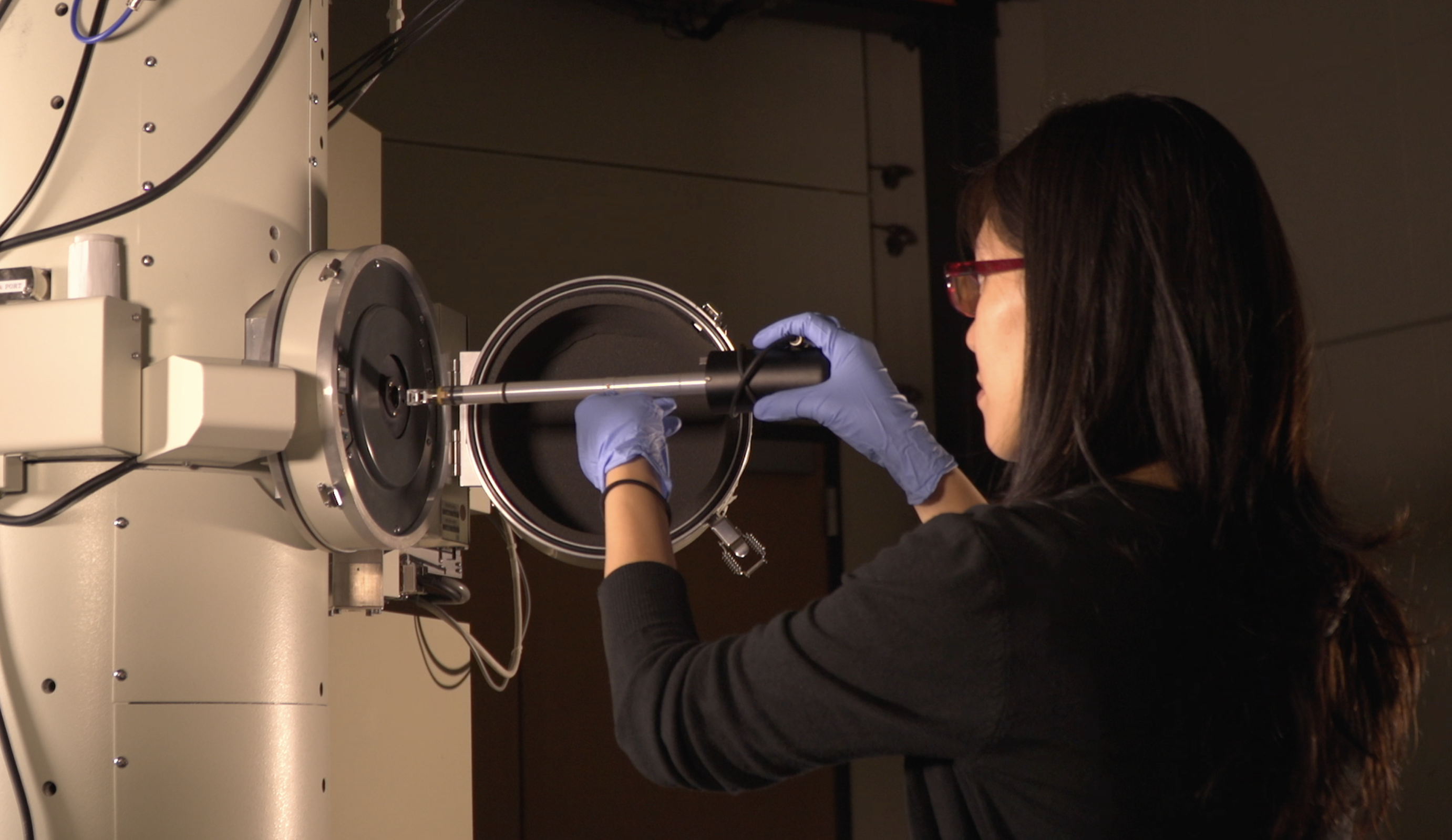NSUF Article
Michigan Center for Materials Characterization joins University of Michigan NSUF partner facilities
The Michigan Center for Materials Characterization, also known as (MC)2, has been approved to become a University of Michigan Nuclear Science User Facilities (NSUF) partner facility. The (MC)2 joins two other University of Michigan laboratories that are already part of the NSUF, the Michigan Ion Beam Laboratory (MIBL) and the Irradiated Materials Testing Laboratory (IMTL), directed by Professor Gary Was. (MC)2 is directed by Professor Alan Taub.

NSUF provides researchers access to neutron, ion, and gamma irradiations, post-irradiation examination, and beamline capabilities from 50 partner facilities. Most of the research looks at either understanding the mechanisms of radiation on materials and fuels to address the challenges of the current fleet of reactors or looks at materials and fuels for the next generation of reactors. The University of Michigan was among the first partner facilities to become a part of NSUF. (MC)2 is dedicated to the micron and nanoscale imaging and analysis of materials. The center provides state-of-the-art instruments, professional training, and in-depth education for students and other internal researchers, fellow academic institutions, and industry.
The diverse multi-disciplinary user base supported by the (MC)2 includes more than 450 users from various colleges and departments, 100+ internal research groups, and over 20 non-academic companies.
With the addition of the (MC)2 to the NSUF partner facility, researchers participating in Rapid Turnaround Experiments (RTE) can conduct ion irradiation and post-irradiation analysis at a single location, which will save on cost and time. Now, given the wide array of instrumentation in (MC)2, many RTEs using MIBL will be able to complete their experiment in a single visit to the University of Michigan's North Campus.
The (MC)2 brings several unique capabilities that are not currently part of the NSUF suite, including:
- Xenon Plasma FIB for Ga-free preparation of aluminum samples
- Argon glovebox integrated with a Helios FIB’s cryo stage allowing air-sensitive sample transfers and cryo TEM/APT sample prep that reduces hydrogen contamination
- The MicroCT for non-destructive 3D tomography
- LEAP 5000 atom probe
- A newly purchased Thermo Spectra with the highest energy resolution currently possible, allowing EELS resolution that is an order of magnitude better than anything currently available along with nanoscale FTIR-like EELS
“This exciting addition to the University of Michigan NSUF partner facility will provide unprecedented capability and access to the nuclear materials community interested in radiation effects in materials,” said Was.
Articles
About Us
The Nuclear Science User Facilities (NSUF) is the U.S. Department of Energy Office of Nuclear Energy's only designated nuclear energy user facility. Through peer-reviewed proposal processes, the NSUF provides researchers access to neutron, ion, and gamma irradiations, post-irradiation examination and beamline capabilities at Idaho National Laboratory and a diverse mix of university, national laboratory and industry partner institutions.
Privacy and Accessibility · Vulnerability Disclosure Program

